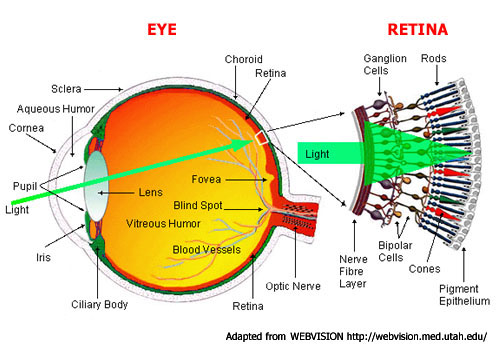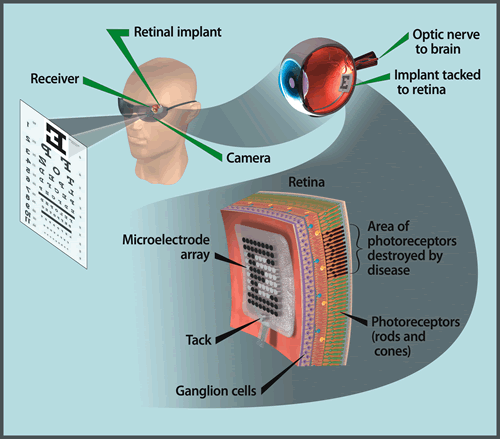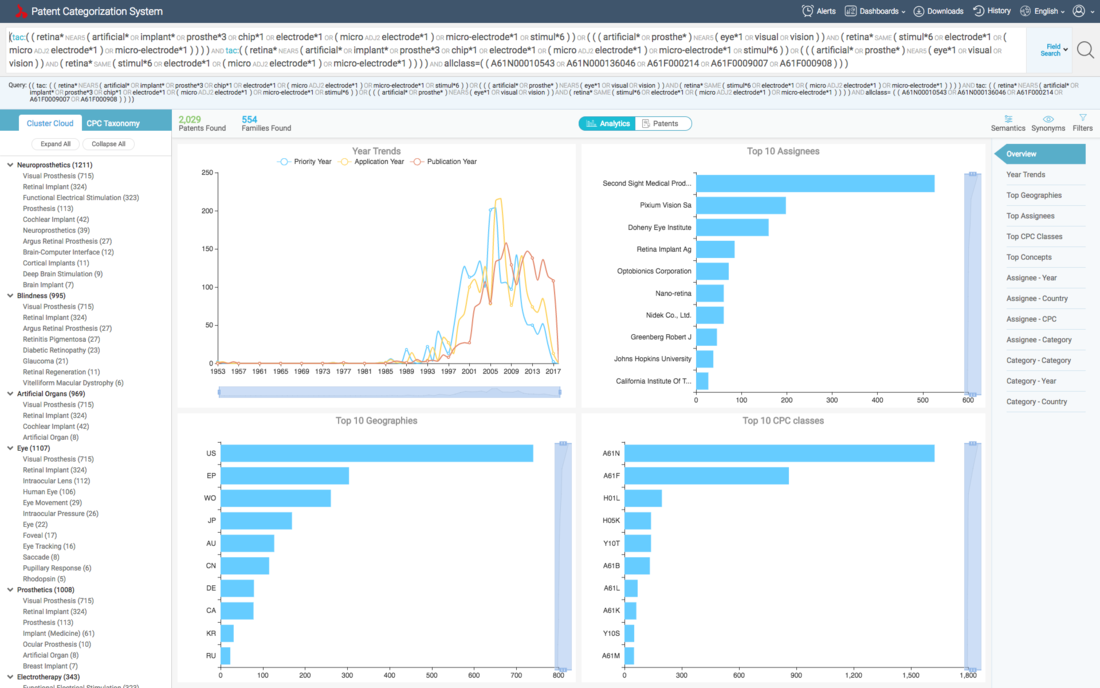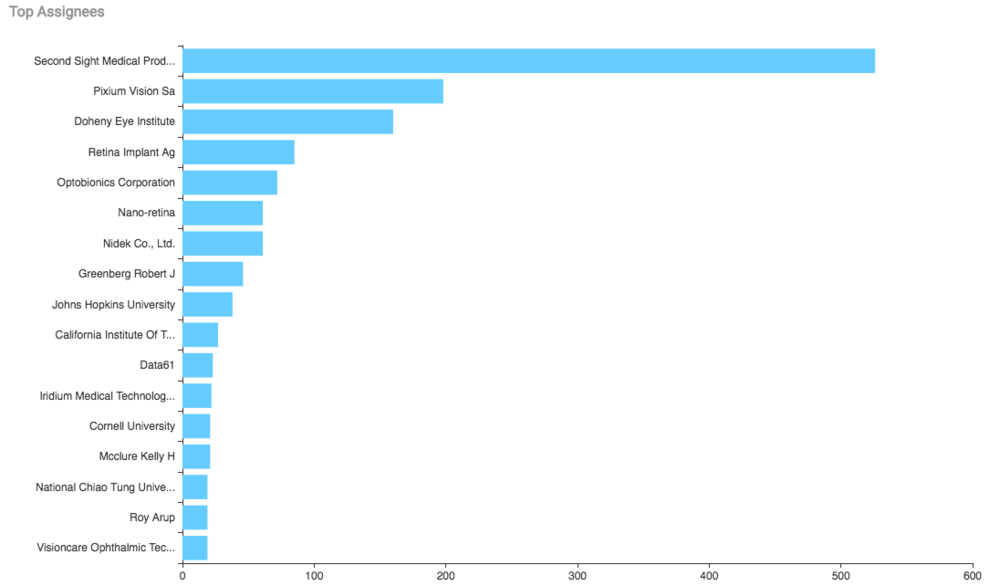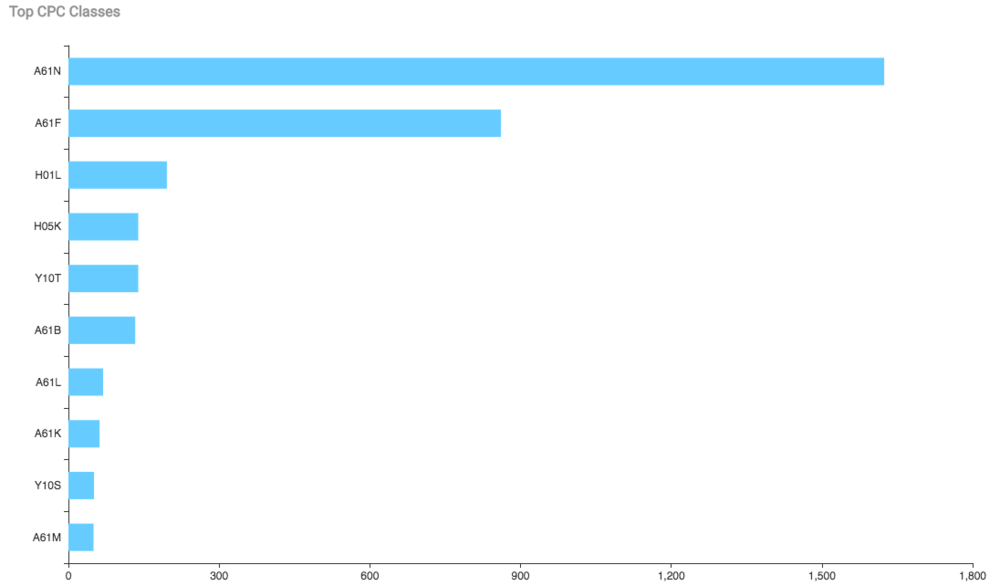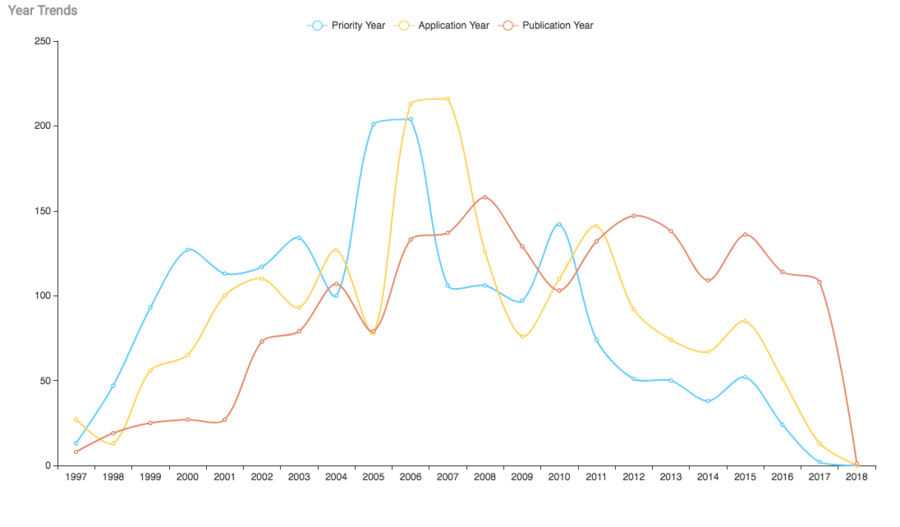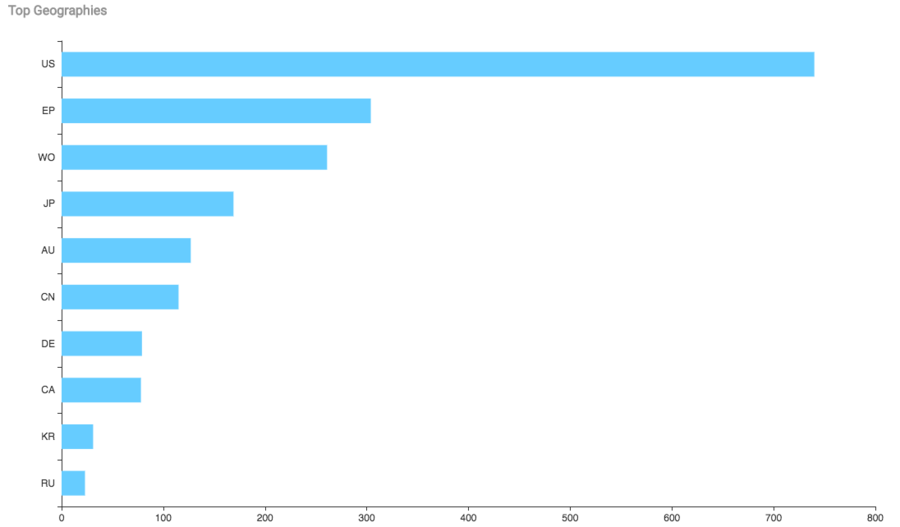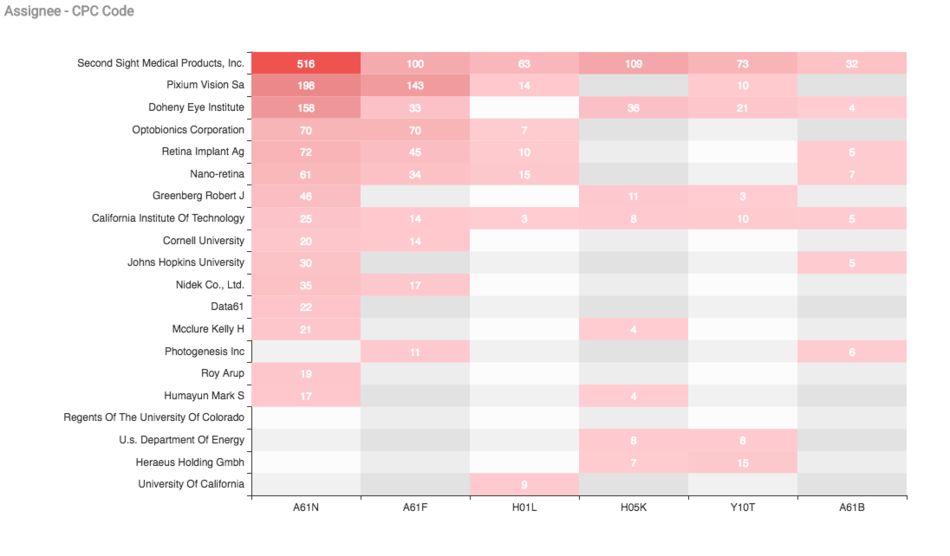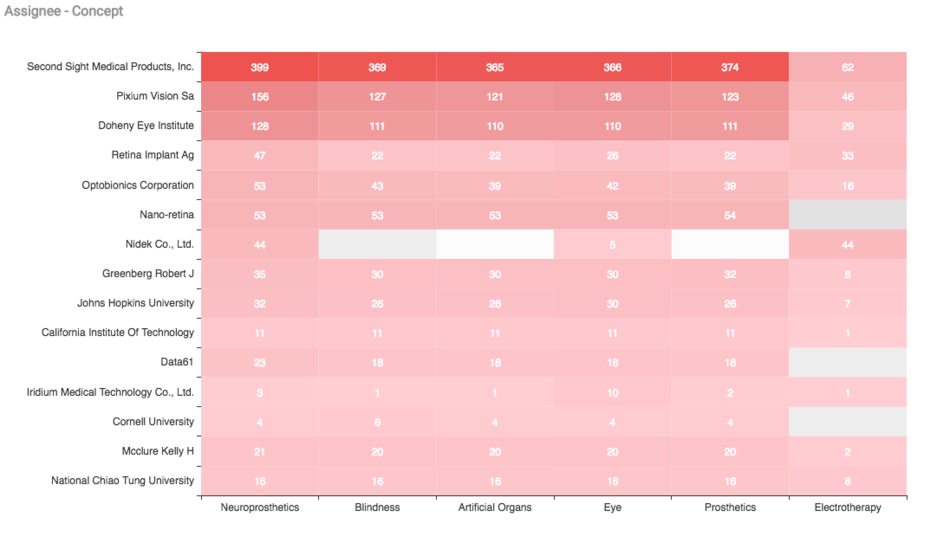Objectives
- Perform a landscape search in the area of Artificial Retina
- Use PCS to derive insights and gain competitive perspective
- Understand the value chain and recent M&A activities
Introduction
The retina is the third and inner coat of the eye, which is a light-sensitive layer of tissue. The optics of the eye creates an image of the visual world on the retina (through the cornea and lens).
Normal vision begins when light enters and moves through the eye to strike specialized photoreceptor cells in the retina called rods and cones. These cells convert light signals to electric impulses that are sent to the optic nerve and the brain.
At least two significant forms of blindness occur because of a loss of the photoreceptive cells of the retina, namely:
- Age-related macular degeneration - results in a loss of central vision, which eliminates a person's ability to read or recognize faces
- Retinitis pigmentosa - results in a slow loss of peripheral and then central vision
With the artificial retina device, a miniature camera mounted in eyeglasses captures images and wirelessly sends the information to a microprocessor (worn on a belt) that converts the data to an electronic signal and transmits it to a receiver on the eye. The receiver sends the signals through a tiny, thin cable to the microelectrode array, stimulating it to emit pulses. The artificial retina device thus bypasses defunct photoreceptor cells and transmits electrical signals directly to the retina’s remaining viable cells. The pulses travel to the optic nerve and, ultimately, to the brain, which perceives patterns of light and dark spots corresponding to the electrodes stimulated. Patients learn to interpret these visual patterns. Artificial Retina Project
Search in PCS
A search on PCS in the area of Artificial Retina was performed with the following search strategy:
|
tac:((retina* NEAR5 (artificial* OR implant* OR prosthe*3 OR chip*1 OR electrode*1 OR (micro ADJ2 electrode*1) OR micro-electrode*1 OR stimul*6))) OR tac:(((artificial* OR prosthe*) NEAR5 (eye*1 OR visual OR vision)) AND (retina* SAME (stimul*6 OR electrode*1 OR (micro ADJ2 electrode*1) OR micro-electrode*1))) AND allclass:((A61N00010543 OR A61N000136046 OR A61F000214 OR A61F0009007 OR A61F000908)) |
Top Assignees
- The top companies under top 5 that are big players in Artificial vision devices from North America:
- Second Sight Medical Products – California
- Optobionics Corporation – Illinois
- The top two companies that are big players in Artificial vision devices from Europe:
- Pixium Vision - France
- Retina Implant AG - Germany
- Three major universities in US, that have also patented technologies in this space:
- John Hopkins University
- California Institute of Technology
- Cornell University
Top Assignee- Insights
(A) Second Sight Medical Products Inc.
- They have patents that focus on improving the user comfort and user feedback.
(B) Pixium Vision SA
- The patents mostly discuss about the constructional features like, designing photodiodes, mounting and sealing features of a retinal implant.
Bibliographic Analytics
Main CPC’s:
- A61N ---> ELECTROTHERAPY; MAGNETOTHERAPY; RADIATION THERAPY; ULTRASOUND THERAPY
- A61F ---> FILTERS IMPLANTABLE INTO BLOOD VESSELS; PROSTHESES; DEVICES PROVIDING PATENCY TO, OR PREVENTING COLLAPSING OF, TUBULAR STRUCTURES OF THE BODY, E.G. STENTS; ORTHOPAEDIC, NURSING OR CONTRACEPTIVE DEVICES; FOMENTATION; TREATMENT OR PROTECTION OF EYES OR EARS; BANDAGES, DRESSINGS OR ABSORBENT PADS; FIRST-AID KITS
- H01L ---> SEMICONDUCTOR DEVICES; ELECTRIC SOLID STATE DEVICES NOT OTHERWISE PROVIDED FOR
- H05K ---> PRINTED CIRCUITS; CASINGS OR CONSTRUCTIONAL DETAILS OF ELECTRIC APPARATUS; MANUFACTURE OF ASSEMBLAGES OF ELECTRICAL COMPONENTS
- Y10T ---> TECHNICAL SUBJECTS COVERED BY FORMER US CLASSIFICATION
- A61B ---> DIAGNOSIS; SURGERY; IDENTIFICATION
IP Activity
- IP activity started 20 years and saw a peak in the number of publications in 2008, followed by 2012 and 2015.
- The number of applications shot to the peak value during the period of 2006-2007.
Geographical Distribution
- Most of the patents in this technology are from US or Europe.
- Japan and China top the Asian subcontinent, in the number of patent filings.
Technical Insights: CPC Distribution in Top Assignees
- All the product based companies- Second Sight Medical Products, Pixium Vision, Optobionics Corporation and Retina Implant AG have heavy presence on the therapy based classes- A61N, A61F, A61B.
- Second Sight Medical Products has the most number of filings for the printed circuit bases class- H05K.
Technical Insights: Concepts vs. Top Assignees
Technology Concepts:
- Second Sight Medical Products, Pixium Vision and Doheny Eye Institute patents disclose technologies related to Neuro-prosthetics, Blindness, Artificial Organs and Prosthetics.
- Second Sight Medical Products, Pixium Vision has more patents on Electrotherapy.
M&A Activity in the Space
- Okuvision and Retina Implant merge together under the parent company Retina Implant AG [Retina Implant AG, February 2017]
- NIDEK -- Two Sister Companies Merge to Combine Efforts in U.S. Ophthalmic Industry. [Globenewswire, October 2005]
